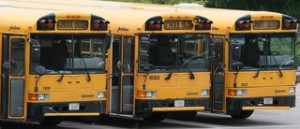More Evidence on Charter Schools
Writing at Slate, Ray Fisman reviews the latest research on the efficacy of charter schools. The study focuses on students at six Boston schools that had previously demonstrated an ability to improve students’ test scores on the Massachusetts Comprehensive Assessment System. This time, however, the researchers wanted to evaluate whether the schools really improved student outcomes or just mastered the art of “teaching to the test.” Here’s the breakdown:
The study examines the college readiness of Boston public school students who applied to attend the six charter schools between 2002 and 2008, with projected graduation dates of 2006–2013. In just about every dimension that affects post-secondary education, students who got high lottery numbers (and hence were much more likely to enroll in a charter school) outperformed those assigned lower lottery numbers. Getting into a charter school doubled the likelihood of enrolling in Advanced Placement classes (the effects are much bigger for math and science than for English) and also doubled the chances that a student will score high enough on standardized tests to be eligible for state-financed college scholarships. While charter school students aren’t more likely to take the SAT, the ones who do perform better, mainly due to higher math scores.
The upshot of this improvement in college readiness is that, upon graduation, while charter and public school students are just as likely to go on to post-secondary education, charter students enroll at four-year colleges at much higher rates. A four-year college degree has historically meant a better job with a higher salary, making a spot in one of Boston’s charter schools a ticket to a better life for many students. (We’ll presumably know in a few years whether things actually turn out that way in the longer run for the cohort the researchers are following.)


Comments